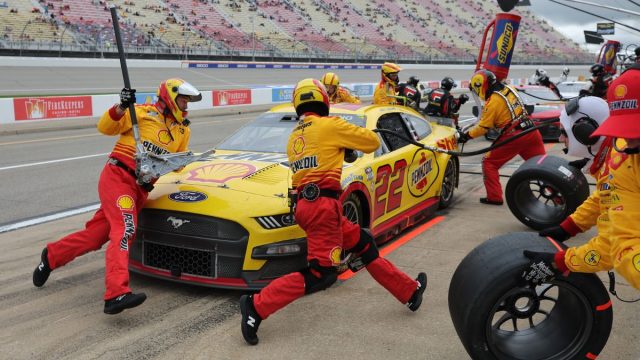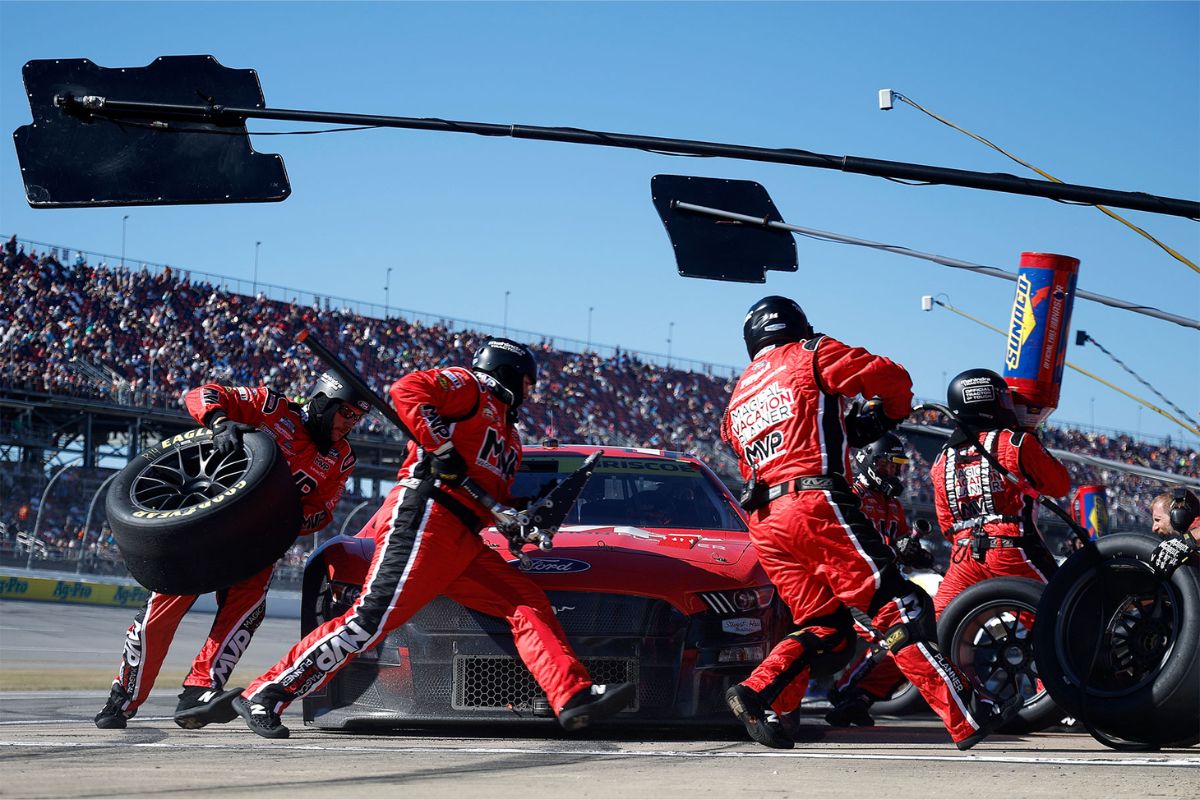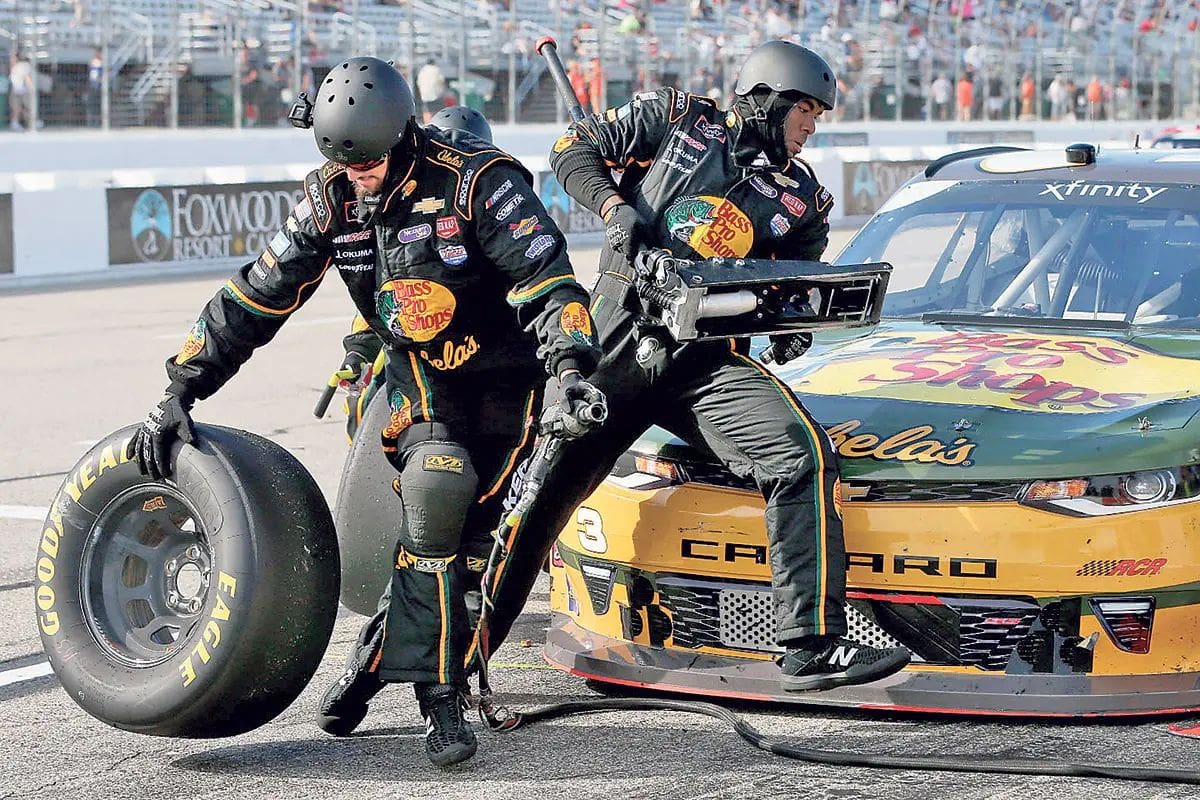Danielle Trotta Reveals Pit Crew Contracts Soaring: The recent disclosure by Danielle Trotta regarding the escalation of pit crew contracts in the Next Gen era of NASCAR marks a significant shift in the dynamics of motorsport economics. As these contracts reportedly range between $150,000 and $200,000, it highlights a growing appreciation for the critical role that pit crews play in the success of racing teams. This rise in contract values not only demonstrates the heightened competition for skilled crew members but also signals a broader trend towards professionalization and specialization within the sport.
Key Takeaways
- Pit crew contracts have increased to $150,000-$200,000, reflecting their growing importance in racing.
- Long-term contracts are used to secure top pit crew talent.
- The Next Gen era emphasizes the need for speed and precision in pit stops.
- Investment in pit crew training and development is seen as essential for maintaining competitiveness.
- Geographic and contractual challenges at RCR highlight the industry-wide issue of accessing and retaining skilled pit crew members.
Danielle Trotta and Alexis Erickson on Pit Crew Importance
Danielle Trotta and Alexis Erickson provide compelling insights into this critical aspect of racing strategy. According to these seasoned analysts, pit crews are much more than the background mechanics of NASCAR—they are central to the strategy and success of any racing team. In today’s racing environment, the efficiency and skill of the pit crew can decisively impact the outcome of a race.
Danielle Trotta emphasized that modern racing is not solely about the skill of the driver or the engineering of the car, but equally about how swiftly and flawlessly a pit crew can execute under challenging circumstances. The pit stop is a critical moment in any race, where mere moments can lead to significant shifts in race standings. This makes the role of the pit crew crucial; their performance can effectively make or break a race.
“You’re seeing that with these contracts. These pit crew guys historically were low six-figure guys and I don’t know momentarily what they net out now for getting closer to the $150,000-$200,000 range, but I do know that contracts are through the roof. I talked to one pit crew member that recently has won a championship and he’s locked up for like 7 years.” -Trotta
Alexis Erickson, reflecting on Brad Keselowski’s strategic moves at RFK Racing, pointed out the substantial investments made into honing the efficiency of pit crews. Keselowski’s approach highlights a broader trend within NASCAR, where teams are recognizing the significant return on investment that a skilled pit crew can deliver. Not only does this investment improve the team’s competitive edge, but it also amplifies the entire racing spectacle, making each pit stop a vital, pulse-pounding element of the sport.
“He (Brad Keselowski) said the return on investment on pit crews is at such a high point right now that they had to kind of re-evaluate the money that they were spending on pit crew and put more resources into that aspect of the race team as opposed to other things because he knew that it’s a game changer, he knew getting those spots on pit road completely changes the complexion and your opportunity to win.” -Alexis Erickson
Pit Crew Contracts Reach New Heights
Reflecting the critical role they play in NASCAR’s competitive landscape, pit crew contracts have experienced a marked increase, now reaching upwards of $150,000 to $200,000. This escalation not only mirrors the escalating stakes in the sport but also highlights the enhanced skill sets required in the Next Gen era of racing. As teams invest heavily in technology and equipment, the emphasis on human performance has intensified, positioning pit crews as crucial assets in the race strategy.
The evolution in contract size corresponds with a broader recognition of the pit crew’s impact on race outcomes. Historically viewed as support roles, these professionals are now seen as integral components of the racing team, similar to the drivers themselves. The surge in remuneration reflects this shift in perception, acknowledging the rigorous training and precision required to execute flawless pit stops that could mean the difference between winning and losing.
Pit Crew Challenges at RCR
Amid the broader industry trend of rising pit crew contracts, Richard Childress Racing faces specific challenges in optimizing their pit crew’s effectiveness, largely influenced by their geographic location and binding existing contracts. This scenario places RCR in a complex position as they navigate the competitive landscape of NASCAR’s Next Gen era, where agility and precision on pit road are paramount.
RCR’s geographical positioning somewhat limits their access to a broad talent pool. Unlike teams based in the more central hubs of motorsports, RCR must work harder to attract and retain top-tier pit crew talent. This has a direct impact on their ability to consistently perform at the highest levels during races, where every moment on pit road counts.
Moreover, the existing contracts within RCR pose their own set of challenges. These agreements, often rigid, can prevent the rapid adaptation or overhaul of pit crew rosters in response to performance demands or emerging opportunities.
- Geographic Disadvantages: Limited access to a diverse workforce can stifle innovation and adaptation in pit crew strategy and execution.
- Contractual Limitations: Existing agreements may restrict RCR’s ability to make swift personnel changes in response to dynamic race conditions or performance analytics.
- Pressure to Perform: Frequent team shakeups and the high expectations for success create a stressful environment that can impact crew performance and cohesion.
Kyle Busch’s Perspective and Team Efforts
Kyle Busch, a seasoned NASCAR driver, emphasizes the critical role of an efficient pit crew in achieving race victories, highlighting his proactive approach to continuous team improvement at RCR. Busch appreciates the intricate ballet of a well-executed pit stop and its direct correlation with racing success.
“The easiest place to pass somebody else is when they’re sitting still, on pit road. So we have to be better on pit road.” -Busch said as per NBC Sports.
Busch’s tenure at RCR has been marked by a commitment to excellence, understanding that the margin for error is significantly slim. The advent of the Next Gen vehicles has introduced a new set of challenges and opportunities, fundamentally altering the pit stop strategy. Busch and his team have responded by prioritizing adaptability and resilience, recognizing that the consistency of pit crew performance can decisively influence the outcome of races.
News in Brief: Danielle Trotta Reveals Pit Crew Contracts Soaring
The escalating contracts for pit crews in the NASCAR Next Gen era highlight the critical role these teams play in motorsport success. As pointed out by Danielle Trotta, these figures not only demonstrate the growing valuation of pit crew expertise but also indicate a broader shift in team strategies, emphasizing long-term investments in human capital. This trend emphasizes the evolving dynamics within the sport, where top performance and strategic pit stops are increasingly essential to competitive advantage.
Our Reader’s Queries
Q. How much do NASCAR pit crews get paid?
A. According to reports, NASCAR pit crew members earn an average annual salary of $86,421, with top performers potentially raking in as much as $132,876 yearly, factoring in bonuses and endorsements. Base pay fluctuates depending on the crew member’s position and the team’s performance.
Q. How many people make up a NASCAR pit crew?
A. During a standard pit stop, five team members are permitted over the wall, but in actuality, a full pit crew can encompass up to 20 individuals. Among the less visible roles are that of the Crew Chief, akin to the Head Coach in NASCAR.
Q. What do NASCAR pit crews do?
A. Pit crew members meticulously rehearse their pit stops, simulating real-life scenarios and road conditions to prepare comprehensively. Many teams utilize indoor facilities and practice cars to drill repetitions, refining their movements—from leaping over the wall to swiftly changing tires.



